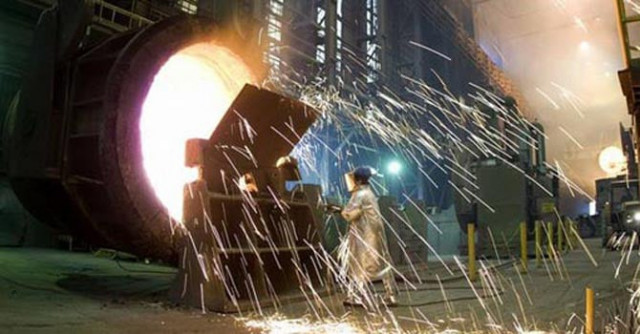Defying market mechanism: ECC – where politics rule economics
Its role could be redefined and narrowed to general policy guidelines.

All such decisions have significant economic consequences and create opportunities for the firms to engage in lobbying with the politicians and government officials. When official signatures are considered more important than market signals, chances of rent-seeking are dramatically increased.
According to the cabinet secretariat, in 2012-13 alone, the ECC met for 17 times and took 177 decisions, mostly commercial in nature. If one typical meeting can take decisions of Rs33 billion, over the years this will amount to a colossal amount.
To get more insight into the nature of decisions, consider two comparable cases. One is that of the state-owned Pakistan Steel Mills and the other is privately owned Tuwairqi Steel Mills. The future of both companies rests largely on the outcome of decisions to be taken by the ECC.
Most recently, the ECC gave approval to a restructuring plan worth Rs18 billion for the Pakistan Steel Mills, obviously not for the first time. In the same meeting, on a lighter note, the committee also approved imposition of 25% regulatory duty on the export of potatoes.
With $340 million investment already made and 1,100 employees, the business model of Tuwairqi Steel Mills is largely based on a flattering assumption: gas supply at a concessionary rate. The only forum that can approve such discounts is the ECC, which has recently refused provision of subsidised supplies of gas.
If the request of the Ministry of Industries to provide gas to Tuwairqi is approved, it will mean a subsidy of Rs25 billion spread over the next five years. This may well have been the net profit of a firm of this size. One could argue that the profit, in this case, is indeed created out of thin air.
Tuwairqi Steel Mills, a joint venture between Saudi Arabian and South Korean companies, has suffered losses of millions of dollars because of the closure of DRI plant for the past several months due to absence of gas.
Even when purely commercial transactions are possible, it is a prerequisite to seek approval of the ECC. A case in point is that of the Utility Stores Corporation (USC), which was allowed by the ECC last year to buy sugar from domestic mills. Earlier, the USC was obliged to buy the commodity only from the Trading Corporation of Pakistan, which is another nexus between commercial interests and government intervention.
However, the ECC had also to offer credit line to the USC, enabling it to buy sugar from the open market, which would otherwise have received a different accounting treatment.
The ECC is the platform where politics influence economic decisions, bringing finally bad name to both.
The previous PPP-led government had decided to divert 103 million cubic feet of gas per day (mmcfd) from Engro’s old fertiliser plant, connected to the Mari gas field, to its new Enven plant, but did not agree on reducing the rate to 70 cents from $3.3 per mmbtu. That, in turn, has caused significant losses to Engro, purely because their contract was again based on an understanding with the government, rather than an analysis of markets.
For a government which claims legitimacy due to its history of economic reforms, restructuring the ECC presents a test case. Imagine a scenario where no ECC would exist, not at least for commercial decisions.
Understandably, the decisions would be taken as a result of a free inter-play between market agents. No one would hide behind a so-called public welfare argument that is usually twisted both by the state and the private sector to allocate benefits politically. True arbitrage only happens via market, rest is rent-seeking.
Redefining and narrowing the mandate of the ECC to matters of general policy guidelines rather than legalising subsidies, price intervention and quota management would make a significant policy statement. Short of such bold steps, the current regime deserves no mention in history, even if it completes its constitutional tenure.
The writer is the executive director of PRIME Institute, an economic policy think tank based in Islamabad
Published in The Express Tribune, October 20th, 2014.
Like Business on Facebook, follow @TribuneBiz on Twitter to stay informed and join in the conversation.



















COMMENTS
Comments are moderated and generally will be posted if they are on-topic and not abusive.
For more information, please see our Comments FAQ